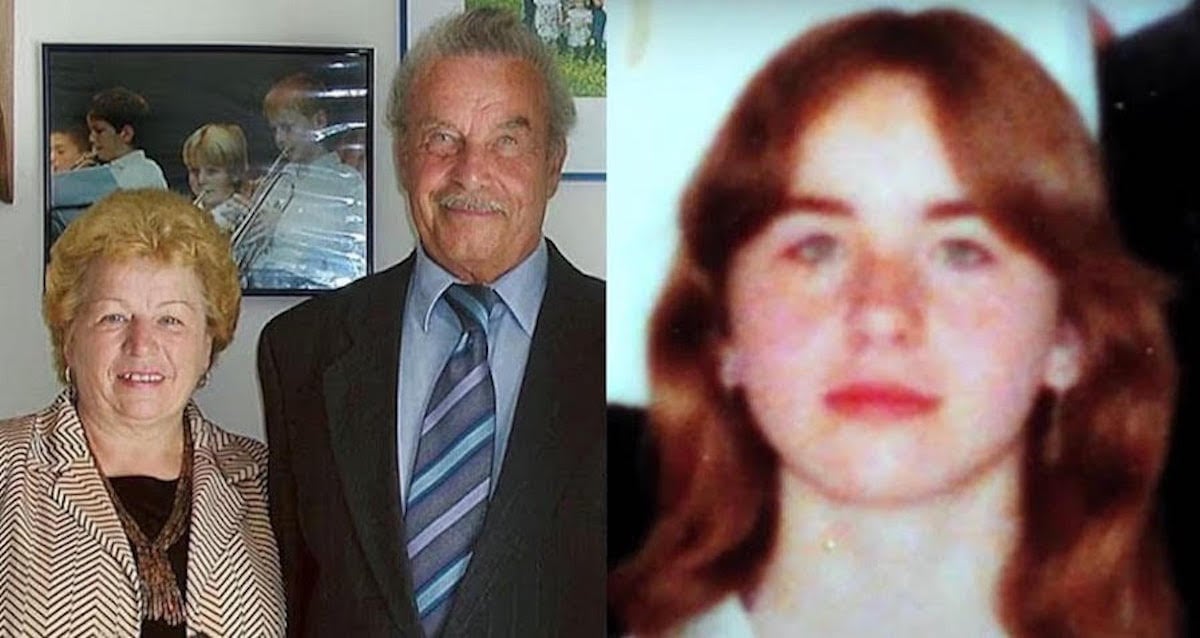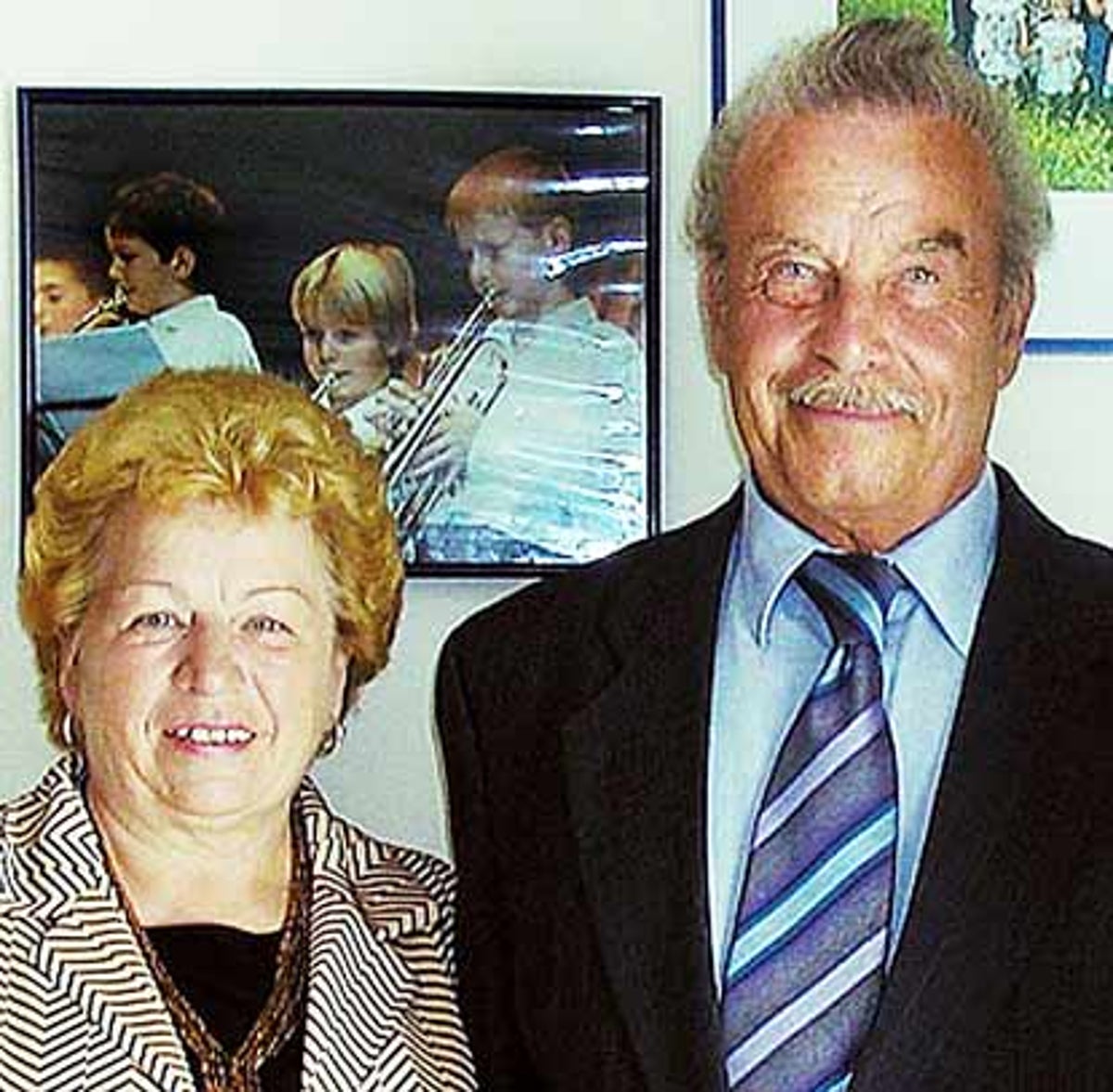Rosemarie Fritzl's story is one of the most shocking and harrowing tales of abuse and survival in modern history. It has captured global attention, not only for the atrocities committed but also for the incredible strength displayed by the victims. This case highlights the importance of addressing systemic issues related to abuse, human rights, and justice. Rosemarie Fritzl's story is a stark reminder of the need for vigilance and action in protecting vulnerable individuals.
Rosemarie Fritzl, a name that has become synonymous with one of the darkest chapters in human history, represents the resilience of the human spirit in the face of unimaginable adversity. The story of her captivity, abuse, and eventual liberation has left an indelible mark on society, prompting widespread discussions about safety, accountability, and justice.
This article delves deep into the life of Rosemarie Fritzl, exploring her background, the harrowing details of her captivity, the legal proceedings that followed, and the broader implications of her case. Through this exploration, we aim to shed light on the importance of understanding, addressing, and preventing such crimes in the future.
Read also:Missy From The Big Bang Theory A Comprehensive Dive Into Her Role And Impact
Table of Contents
- Biography of Rosemarie Fritzl
- Background and Early Life
- The Horrifying Captivity
- Discovery and Liberation
- Legal Proceedings
- Impact on Society
- Psychological Effects
- Pursuit of Justice
- Preventing Future Atrocities
- Conclusion
Biography of Rosemarie Fritzl
Rosemarie Fritzl, born on October 27, 1960, in Amstetten, Austria, is a central figure in one of the most shocking cases of abuse and confinement in history. Her life took a tragic turn when she was abducted by her own father, Josef Fritzl, in 1984. For over two decades, she endured unimaginable horrors in a basement dungeon, where she was repeatedly abused and bore seven children.
Rosemarie Fritzl's Biodata
| Full Name | Rosemarie Fritzl |
|---|---|
| Date of Birth | October 27, 1960 |
| Place of Birth | Amstetten, Austria |
| Occupation | Housewife |
| Known For | Survivor of one of the most heinous cases of abuse and captivity |
Background and Early Life
Rosemarie Fritzl grew up in a seemingly ordinary Austrian household. Little did anyone know that her father, Josef Fritzl, harbored sinister intentions. Rosemarie was a bright and cheerful child, but her life changed dramatically when she reached adulthood. In 1984, at the age of 23, she was lured into a meticulously planned trap by her father, marking the beginning of a nightmare that would last for 24 years.
The Horrifying Captivity
Josef Fritzl, a former engineer, constructed a hidden basement beneath his home in Amstetten. This basement became the site of unspeakable atrocities. Rosemarie was confined in this dungeon, subjected to physical, emotional, and sexual abuse. During her captivity, she gave birth to seven children, three of whom were released into Josef's care while the others remained hidden in the dungeon.
Conditions in the Basement
The conditions in the basement were deplorable. Rosemarie and her children lived in constant fear, with no access to the outside world. They were deprived of basic human rights, including sunlight, freedom, and proper medical care. Despite these hardships, Rosemarie's resilience and determination to protect her children became her guiding force.
Discovery and Liberation
The world learned of Rosemarie Fritzl's ordeal in 2008 when one of her children, Kerstin, fell ill and required medical attention. Josef Fritzl, fearing exposure, reluctantly sought medical help. This act led to the unraveling of the horrifying truth. Authorities were alerted, and a thorough investigation revealed the existence of the dungeon and the years of abuse endured by Rosemarie and her children.
Reactions and Shockwaves
- Global outrage erupted as the details of the case emerged.
- Media coverage brought the story to the forefront, sparking discussions about abuse and justice.
- Support networks were established to aid Rosemarie and her children in rebuilding their lives.
Legal Proceedings
Josef Fritzl's trial was one of the most high-profile legal cases in Austria's history. The prosecution presented overwhelming evidence of his crimes, including DNA samples, video recordings, and witness testimonies. In 2009, Fritzl was sentenced to life imprisonment without the possibility of parole, a fitting punishment for his heinous acts.
Read also:Katy Mixon Lose Weight The Inspiring Journey To Fitness And Wellness
Significance of the Verdict
The verdict sent a strong message to society: perpetrators of such crimes will be held accountable. It also highlighted the importance of legal systems in ensuring justice for victims and their families.
Impact on Society
Rosemarie Fritzl's story had a profound impact on society, prompting discussions about the prevalence of abuse and the need for better protection mechanisms. It led to the implementation of stricter laws and policies to safeguard vulnerable individuals.
Broader Implications
- Increased awareness of domestic abuse and its long-term effects.
- Improved support systems for victims and survivors.
- Reforms in legal and social frameworks to address similar cases more effectively.
Psychological Effects
The psychological impact of Rosemarie Fritzl's captivity cannot be overstated. Both she and her children experienced severe trauma, requiring extensive counseling and therapy to cope with their experiences. Understanding the psychological effects of such cases is crucial in providing comprehensive support to survivors.
Therapeutic Interventions
Therapists and mental health professionals played a vital role in helping Rosemarie and her children navigate their trauma. Techniques such as cognitive-behavioral therapy and trauma-focused interventions were employed to facilitate healing and recovery.
Pursuit of Justice
The pursuit of justice for Rosemarie Fritzl and her children was a testament to the resilience of the legal system. It demonstrated that even in the face of unimaginable atrocities, justice can prevail. The case also underscored the importance of vigilance and community involvement in preventing such crimes in the future.
Lessons Learned
Several key lessons were drawn from the Rosemarie Fritzl case:
- The need for increased awareness and education about abuse.
- The importance of fostering safe environments for reporting and seeking help.
- The necessity of implementing robust legal frameworks to address abuse cases.
Preventing Future Atrocities
Preventing future atrocities requires a multi-faceted approach. Governments, communities, and individuals must work together to create safer environments for everyone. Education, awareness campaigns, and the development of support networks are essential components of this effort.
Steps Toward Prevention
- Implementing mandatory abuse awareness programs in schools and communities.
- Encouraging open dialogue about abuse and its consequences.
- Providing accessible resources for victims and their families.
Conclusion
Rosemarie Fritzl's story is a harrowing reminder of the darkest aspects of human nature, but it is also a testament to the resilience of the human spirit. Her journey from captivity to liberation has inspired countless individuals around the world to speak out against abuse and advocate for justice.
As we reflect on her story, let us commit to creating a safer, more compassionate world. We encourage readers to share this article, engage in meaningful discussions, and take action to support organizations working to combat abuse and protect vulnerable individuals. Together, we can make a difference.

